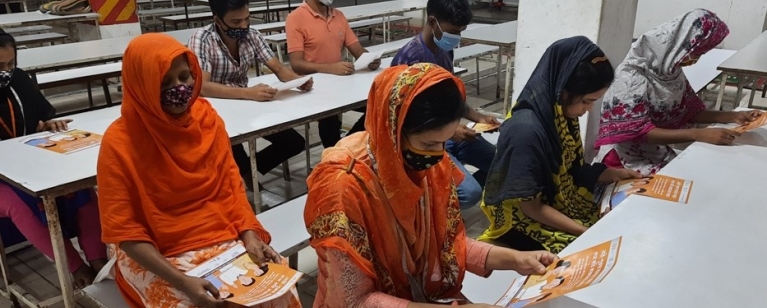
The 16 Days of Activism against Gender-Based Violence is an annual international campaign that kicks off on 25 November, the International Day for the Elimination of Violence against Women, and runs until 10 December, Human Rights Day. It was started by activists at the inaugural Women’s Global Leadership Institute in 1991 and is used as an organizing strategy by individuals and organizations around the world to call for the prevention and elimination of violence against women and girls.
In 2020 it took place under the global theme: "Orange the World: Fund, Respond, Prevent, Collect!" As the world retreated inside homes due to the lockdown measures introduced to curb the COVID-19 pandemic, reports showed an alarming increase in the already existing pandemic of violence against women.[1]
The Joint ETI’s activities to mark 16 Days of Activism against Gender-Based Violence reached 12,000 male and female workers across 10 factories.
The team distributed leaflets with messages around gender equity, gender-based violence and making the workplace safer and happier and developed a song in Bangla which was played on the PA system at the factories throughout the day.
In addition, the team organised Covid-safe virtual discussion sessions, with each team member sharing their personal experiences, thinking and mindset regarding gender-based violence, marital rape, social stigmas and other issues women are facing in Bangladesh.
In keeping with the 2020 theme of "Orange the World", the team wore orange dresses to support the cause and to make the discussion more colourful.
The ETI Bangladesh team is actively working and spreading the message to its beneficiaries and stakeholders to call for the prevention and elimination of violence against women and girls.
[1]https://www.unwomen.org/en/what-we-do/ending-violence-against-women/take-action/16-days-of-activism
